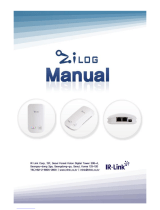
Zilog File System
Reference Manual
RM003914-1211 Zilog File System
3
The architecture of the Zilog File System contains a number of compo-
nents, each of which is described below.
Zilog File System Programming Interface. This layer contains the API
implementation for basic file and directory operations. These interfaces
are called by the application to access the files and directories contained
in the memory device.
Operating System Abstraction Library (OSAL). This component
implements the OS abstraction for the target OS APIs that are used by the
Zilog File System.
Zilog File System Core. This layer handles sector-related information
such as allocation and deallocation, and performs address translation. It
also invokes garbage collection to retrieve dirty sectors from the disk
when required.
The Zilog File System implements support for equally-sized blocks,
wherein a block refers to a fixed number of bytes present in memory
(which is equivalent to a physically-erasable block).
Zilog File System Hardware Abstraction Layer. This layer provides a
hardware abstraction (or driver abstraction) layer to integrate multiple
devices seamlessly without any changes in other components.
The Zilog File System implements current working directory information
on a per-thread basis, not on a per-system basis. However, it implements
volumes on a per-system basis. The Zilog File System also allows easy
volume configuration.
Developing Applications with the Zilog File System
The application can call any of the Zilog File System APIs. The
ZFSInit() API must be called first to initialize the system. This API
checks the volume for the native format of the Zilog File System and
loads file and directory information into memory. The
ZFSInit() API
returns the volume information that is invalid or does not contain a valid





















